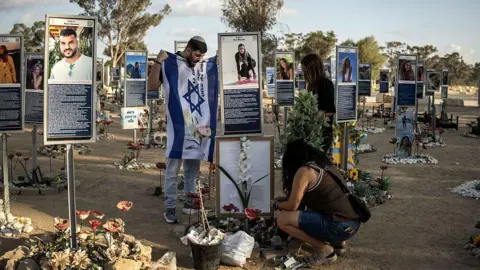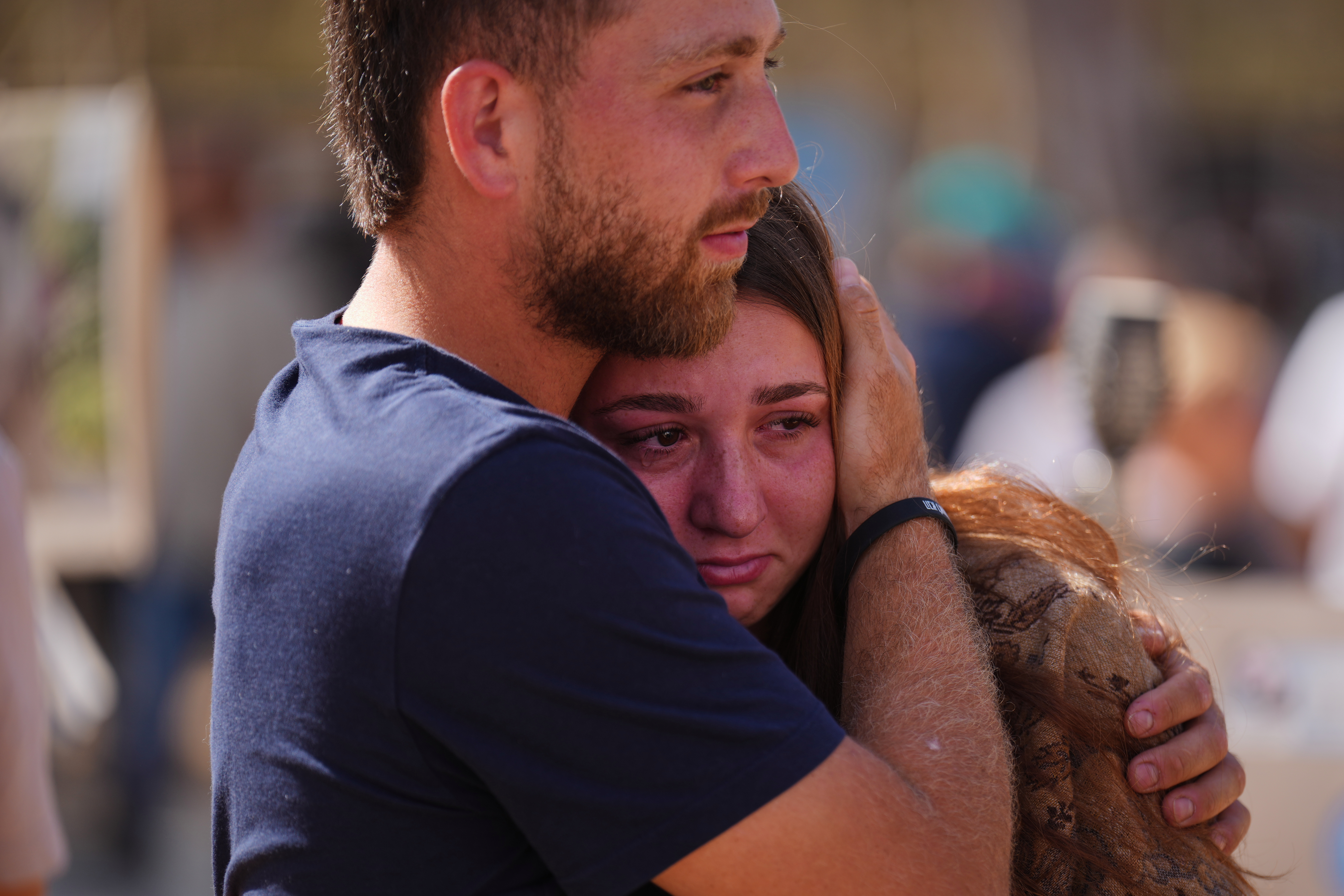October 7 Attacks: Two Years Later - Impact on America and the World
October 7 Attacks: Two Years Later - Impact on America and the World
Table of Contents:

What Happened on October 7, 2023
October 7, 2023, marked one of the most devastating terrorist attacks in modern history, forever changing the Middle East and reverberating across the United States. Hamas and allied Palestinian militant groups launched a coordinated assault on southern Israel, breaching the Gaza-Israel barrier in 119 locations and unleashing a barrage of at least 4,300 rockets.
The attacks began at dawn during the Jewish holiday of Simchat Torah, targeting military bases, farming communities, and the Nova music festival. According to Israeli Defense Forces reports, approximately 6,000 Gazans participated in the breach, including 3,800 elite Nukhba fighters and 2,200 civilians and other militants. The assault resulted in the deaths of 1,195 people, including 736 Israeli civilians and 79 foreign nationals.

American Victims and Hostages
The October 7 attacks directly impacted American families, with 46 Americans among those killed in what U.S. officials described as "the largest massacre of Jews since the Holocaust." The human cost for American families has been devastating and ongoing.
American Hostages: A Continuing Crisis
Hamas took 254 people hostage during the attacks, including 12 Americans. The fate of these American citizens became a central focus of U.S. diplomatic efforts. Tragically, four Americans—Hersh Goldberg-Polin, Itay Chen, Judy Weinstein, and Gad Haggai—were murdered by Hamas during their captivity.
Four Americans were successfully released through negotiations facilitated by the United States in November 2023. However, as of October 2025, four Americans remain in captivity in Gaza: Edan Alexander, Keith Siegel, Sagui Dekel-Chen, and Omer Neutra. Their families continue to advocate for their release, working closely with U.S. government officials and international organizations.

United States Government Response
The Biden administration's response to the October 7 attacks was swift and comprehensive, demonstrating America's unwavering support for Israel while working to address the humanitarian crisis that followed.
Diplomatic and Military Support
President Biden immediately condemned the attacks, calling them acts of terrorism and comparing them to the Holocaust in their scope and brutality. The U.S. provided substantial military aid to Israel, including advanced weapons systems and intelligence support. American naval forces were deployed to the Mediterranean to deter regional escalation.
Secretary of State Antony Blinken made multiple trips to the region, leading diplomatic efforts to secure hostage releases and negotiate humanitarian pauses. The State Department established a special task force to coordinate efforts regarding American hostages and their families.
Congressional Response
Congress responded with bipartisan support for Israel and condemnation of Hamas. In October 2025, Representatives Josh Gottheimer (NJ-5) and Mike Lawler (NY-17) announced bipartisan legislation to award the Congressional Gold Medal to American hostages and victims of the October 7 attacks, demonstrating continued commitment to honoring those affected.

Global Impact and Consequences
The October 7 attacks triggered a cascade of events that reshaped Middle Eastern geopolitics and affected American foreign policy priorities. The subsequent Gaza war has resulted in over 67,000 Palestinian casualties according to Hamas-run health authorities, while displacing approximately 90% of Gaza's 2 million residents.
Regional Escalation
The conflict expanded beyond Gaza, drawing in Iran's proxy network including Hezbollah in Lebanon. The United States found itself deeply involved in a 12-day conflict with Iran in June 2024, joining Israel in strikes against Iranian military and nuclear facilities. This marked a significant escalation in U.S.-Iran tensions and reshaped American military commitments in the region.
American diplomatic efforts have focused on preventing further regional escalation while supporting Israel's right to self-defense. The administration has walked a careful line between supporting its ally and addressing concerns about civilian casualties in Gaza.
Two Years Later: Current Status
As the United States marks the second anniversary of the October 7 attacks, the impact continues to reverberate through American foreign policy, domestic politics, and Jewish-American communities nationwide.
Ongoing Negotiations
In October 2025, the Trump administration's peace plan became the focus of indirect talks between Israel and Hamas in Egypt. These negotiations, held in Sharm el-Sheikh, represent renewed hope for resolution, though significant challenges remain in securing the release of remaining hostages and establishing lasting peace.
Domestic Impact
The attacks have influenced American Jewish communities profoundly, with increased security measures at synagogues and Jewish institutions nationwide. College campuses have seen heightened tensions, with debates over Israel-Palestine policy becoming focal points for broader discussions about foreign policy and human rights.

Frequently Asked Questions
How many Americans were killed in the October 7 attacks?
Forty-six Americans were killed in the October 7, 2023 attacks, making it one of the deadliest terrorist attacks against American citizens since 9/11. These victims included dual citizens and Americans visiting or living in Israel.
Are there still American hostages in Gaza?
Yes, as of October 2025, four Americans remain held hostage in Gaza: Edan Alexander, Keith Siegel, Sagui Dekel-Chen, and Omer Neutra. The U.S. government continues working for their release through diplomatic channels.
How has the U.S. supported Israel since October 7?
The United States has provided substantial military aid, intelligence support, and diplomatic backing to Israel. This includes advanced weapons systems, naval deployments to deter regional escalation, and extensive diplomatic efforts to secure hostage releases.
What is the current status of peace negotiations?
As of October 2025, indirect talks between Israel and Hamas are ongoing in Egypt, focusing on the Trump administration's peace plan. These negotiations aim to secure hostage releases and establish a sustainable ceasefire, though significant challenges remain.
Moving Forward: Remembrance and Resolution
Two years after the October 7 attacks, the United States remains committed to supporting its allies while working toward regional stability. The memory of those lost, including the 46 Americans who perished, continues to drive diplomatic efforts aimed at preventing future tragedies and securing the release of remaining hostages.
As Secretary of State Antony Blinken stated on the anniversary, "It is time to reach a ceasefire agreement that brings the hostages home, alleviates the suffering of the Israeli and Palestinian people, and ultimately brings an end to this war." The path forward requires continued American leadership, international cooperation, and unwavering commitment to both security and humanitarian principles.
Share This Important Information
Help spread awareness about the October 7 attacks and their ongoing impact on American families and foreign policy. Share this article to keep the memory of victims alive and support efforts to bring remaining hostages home.